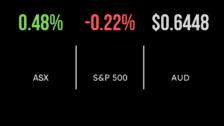Embracing Big Brother
Most of us have not experienced the current level of government and institutional direction of our lives. The impact on business is likely to be profound.
Banks are possibly the best example, where their every move is dictated by policy from monetary and political authorities. Who can they lend to, at what rate, where should interest be deferred, what is their cost of capital? Banks are semi-government institutions now, and should be valued as such. This is a new game: no longer are the historical parameters relevant, such as price-to-book or return on capital, much less a dividend discount model, as what the payout ratio will be is open to debate.
When and how will retail stores reopen, and when they do, what will consumers do in the medium and longer-term? It’s safe to assume it may be some time before purchasing habits resemble those of the past, already precariously balanced between households electing or required to spend more on services than goods. But into the mix has come regulation on numbers of people in stores and the cost of cleaning. New modelling for a retailing stock or retail REIT equity will make assumptions on how various restrictions apply in different regions and sectors.
Turn to any company that looks to fund its business via capital markets. Around the world central banks have undertaken purchases of risky debt, be it high yield, mortgage tranches or facilitated lending to small business, without much oversight on credit quality. The support for so-called ‘zombie’ companies, those that could not come into existence or survive without lenient investors, has meant that the usual cleansing process of failure has been demeaned.
Now even more so, as governments’ implied support for any business that offers employment is paramount. The nature of competition is dependent on what the current political process considers important. Past recessions were a cleansing act as weak companies went out of business or were merged into stronger participants. This is now not the case, and excess capacity will linger, which implies weak pricing power.
A renewed favourite is healthcare. Any company that spruiks its potential to curtail, cure or combat the Coronavirus is given publicity regardless of likely efficacy. Many of these entities have a legacy of past failure to achieve ambitious outcomes. Governments appear willing to support a variety of probably spurious products within a mix of conflicted bias.
On a different level, the virus has exposed the lack of investment, coordination and supply chains for healthcare at a major scale. There will inevitably be a tricky mix of what is considered a one-off, populist support for a more dramatic change, and the intricacies of who gets paid what.
Healthcare has bifurcated between a cottage industry of doctor-led services and intricate newer delivery systems. Expect vested interest to fight hard. A new industry may emerge as a matter of necessity. Existing providers may find it useful to reflect on the changes experienced by other services sectors and contemplate a different world today.
Few would be unaware of the difficulties of investing in an apparently obvious trend such as aged care. Reliance on low-cost labour and regulatory oversight is likely to change the return on capital unless there is a grasp of the costs involved in providing the services many expect. Imagine pricing into a longer-term investment the mix of what is regulated, what is expected by the families, and then, what is affordable?
The shadow of Coronavirus is in supply chains and how or if companies retain this memory elastic to overhaul their operations. This could be a mix of government influence and competition. On the assumption that much of what we did a year ago will return, it is the part that won’t that will be challenged. Consumables, baked beans to flour, now within the headlines are already a passing phase.
Construction companies that rely on supplies from overseas sources are most probably going to return to those given their cost advantages and lack of alternatives or public oversight. Other sectors such as in health, technology and even media, may have to change their operations to prove to authorities that they are not reliant on a foreign entity.
Thematic investors may want to overlay their views into a portfolio. Those that did with the advent of the tech surge, previous commodity cycles or financial sector dominance were rewarded. ‘Big brother’ investment markets may be the next big thing, yet picking the winners is never as obvious as hindsight would lead us to believe.
Most of us have not experienced the current level of government and institutional direction of our lives. The impact on business is likely to be profound.











